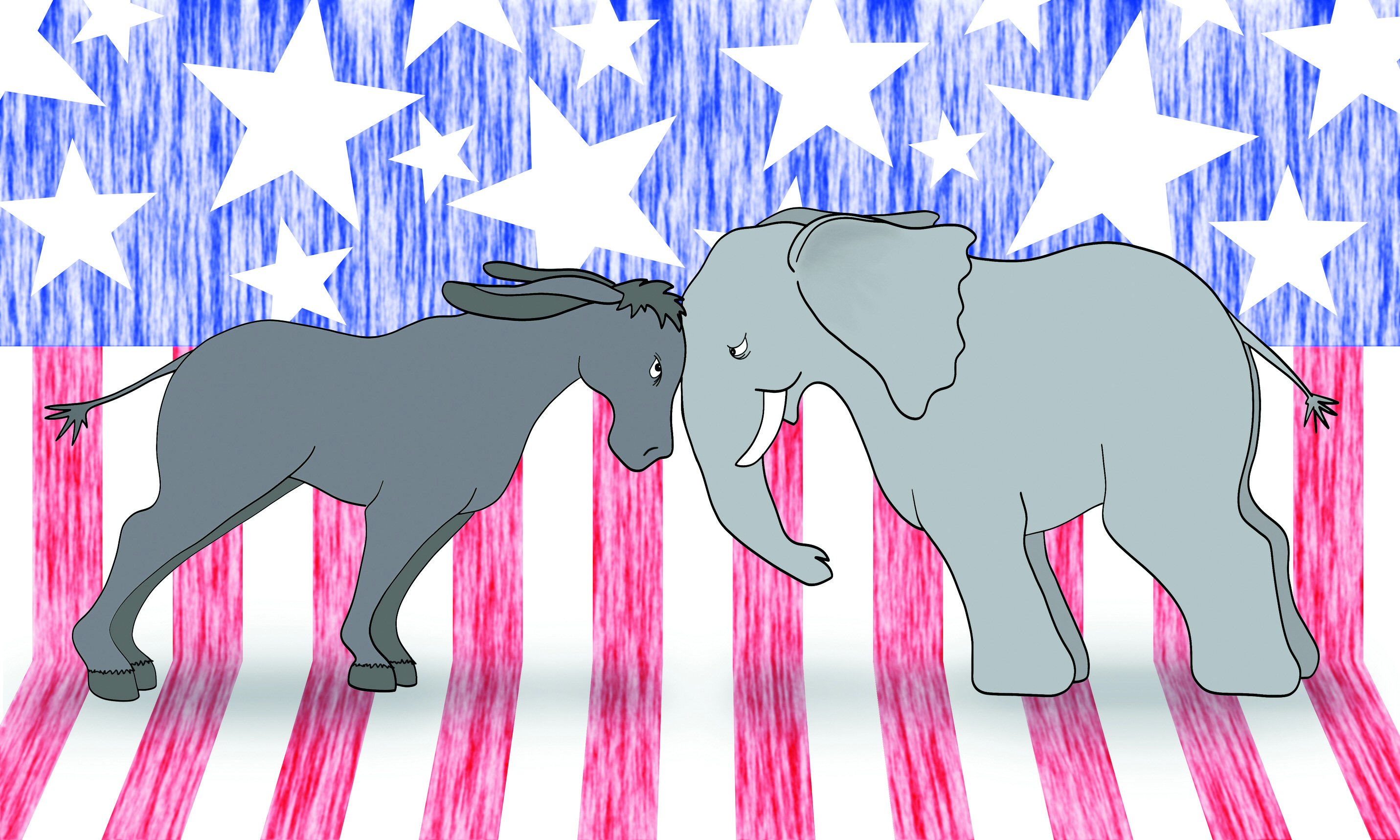The fine line between sharing opinions and verbal bullying
The Innovative Workplace
By Laura Kerekes, SHRM-SCP, SPHR
With the presidential election cycle in full swing and candidates talking about hot human resources topics like immigration, wages, and healthcare, some employees are discussing the candidates and their platforms during the work day. These kinds of conversations have the potential to create camaraderie or become divisive; the last thing any employer wants—or needs—is to have the chatter become adversarial enough to create an uncomfortable work environment.
When employees are passionate about their views, there is often a fine line between sharing strong opinions and verbal bullying. Comments can be viewed as unprofessional at best and potentially discriminatory or hostile at worst. Even after the election, it could take time for the political rhetoric to calm down, so now is the perfect time to mitigate your workplace risks by refreshing a few of your employment practices relating to employee behavior that may cross that fine line.
Employees are talking
If you think these conversations aren’t happening in your workplace, think again. In a CareerBuilder survey of 3,200 workers and more than 1,900 managers in various private sector industries, conducted by Harris Poll earlier this year, nearly one in five surveyed employees stated that they have argued with a coworker over a political candidate. Survey statistics also pointed out that management is more likely than employees to discuss candidates at work, with employers in the information technology industry discussing politics most. Male employees and younger workers—those ages 18 to 24—reported higher incidences of engaging in heated political debates with their colleagues.
… be aware of the signs that political discussions are veering out of control and take immediate action to get employees back on track.
We can’t keep the political discussions out of the office and probably wouldn’t want to completely forbid all conversations. From a practical perspective, most people have opinions about social and political issues that they freely share as part of building relationships with their coworkers. In certain circumstances, however, employers can prohibit political campaigning and other political activities or conversations during the workday that may create productivity problems or cause employee discomfort.
Even in some of those cases, however, employees may have legal protections relating to political involvement. For instance, the National Labor Relations Act provides that employees are protected when engaged in discussions about the terms and conditions of their employment. If an employee writes an opinion online about how a particular political candidate or platform would affect wages, benefits or working conditions and other employees join the conversation, that could be considered a protected concerted activity for which those employees could not be disciplined.
The same holds true if a group of employees had the same conversation in the office during the workday. In addition, the NLRB has published guidance prohibiting employers from dening employees’ rights to wear union buttons or union insignia. For example, an employer probably could not take
action if an employee came to work wearing a political button with the union insignia stating “United Autoworkers for Clinton” (or Trump). Some states and local jurisdictions may have additional laws that protect employees who engage in legal activities outside of work, such as campaigning for a political candidate.
Dos and don’ts
You’ve worked hard to create great employee experiences that breed a positive company culture. You know that you have hired talented people who use good judgment every day in dealing with each other and your customers. The key to maintaining that positive environment that drives employee effectiveness, productivity, and workplace civility is to be aware of the signs that political discussions are veering out of control and take immediate action to get employees back on track.
Do
Set the tone as the leader and “walk the talk” by keeping your own political discussions respectful and courteous to others. By establishing a culture of civility and modeling the right behaviors, you will encourage others to follow your lead. You can also just remain neutral.
Encourage employees to keep their political discussions respectful and remind them to keep those discussions away from customers.
Review your workplace behavior and anti-harassment policies to ensure that they:
Emphasize tolerance and respect for all
Cover personal use of company Internet and email
Include open-door communications and a harassment complaint mechanism.
Train your employees in respectful workplace behavior and what to do if the situation becomes disrespectful, such as walking away instead of engaging in disrespectful conduct.
Train your supervisors so they understand your standards of conduct and have the tools to detect and defuse potentially heated situations and maintain a productive workplace.
Check with legal counsel before taking any adverse action against an employee because of expression of political views.
Don’t
Don’t ban all political talk at work. Robin Shea, partner in the labor and employment law firm of Constangy, Brooks, Smith & Prophete LLP, notes, “As most employers know, the First Amendment does not apply to private workplaces, but the National Labor Relations Act could come into play if the discussions implicate ‘terms and conditions of employment.’ Don’t make, or allow others to make, comments about candidates that may be discriminatory or harassing based on the candidates’ or their supporters’ race, sex, national origin, religion, color, age, disability, or any other legally protected characteristic.”
Don’t create a separate policy dealing with political activity or discussions unless you believe it is necessary. Consult with your legal advisor before implementing any new policies. The CareerBuilder survey noted that 34% of respondents believe that “political correctness has hindered business, making people tiptoe around issues and afraid to speak their minds instead of addressing the issues head on.”
Don’t ignore the heated political discussions in the office in the hope that employees will work through it on their own. Make sure your supervisors are trained and can step in when needed.
Parting advice
Take a balanced approach to your employees’ political conversations and apply your rules fairly and consistently in the hope that each individual employee will consider the company culture and audience and use good judgment in these conversations and activities. Take action when needed.
Prepare for Election Day by ensuring that you know the rules in your area for posting time off to vote notices and ensure that employees have time off to comply with their civic duty. On Election Day, Shea cautions, “If your candidate wins, do not ‘spike the ball in the end zone’ at work. Wait until you get home. If your candidate loses, wish the winner well, or say nothing. Mourn for the demise of our once-great nation when you get home.”
The author
Laura Kerekes is ThinkHR’s Chief Knowledge Officer and leads the ThinkHR content knowledge and human resources service delivery teams. In addition to her company responsibilities, she writes management, human resources and business articles and presents regularly to management groups regarding human resources best practices.






